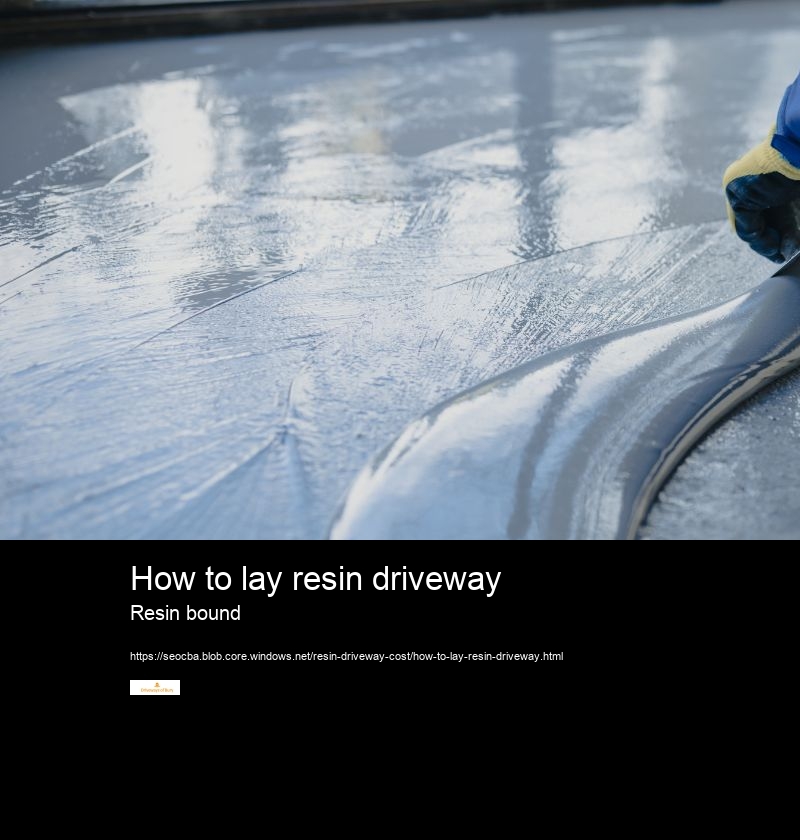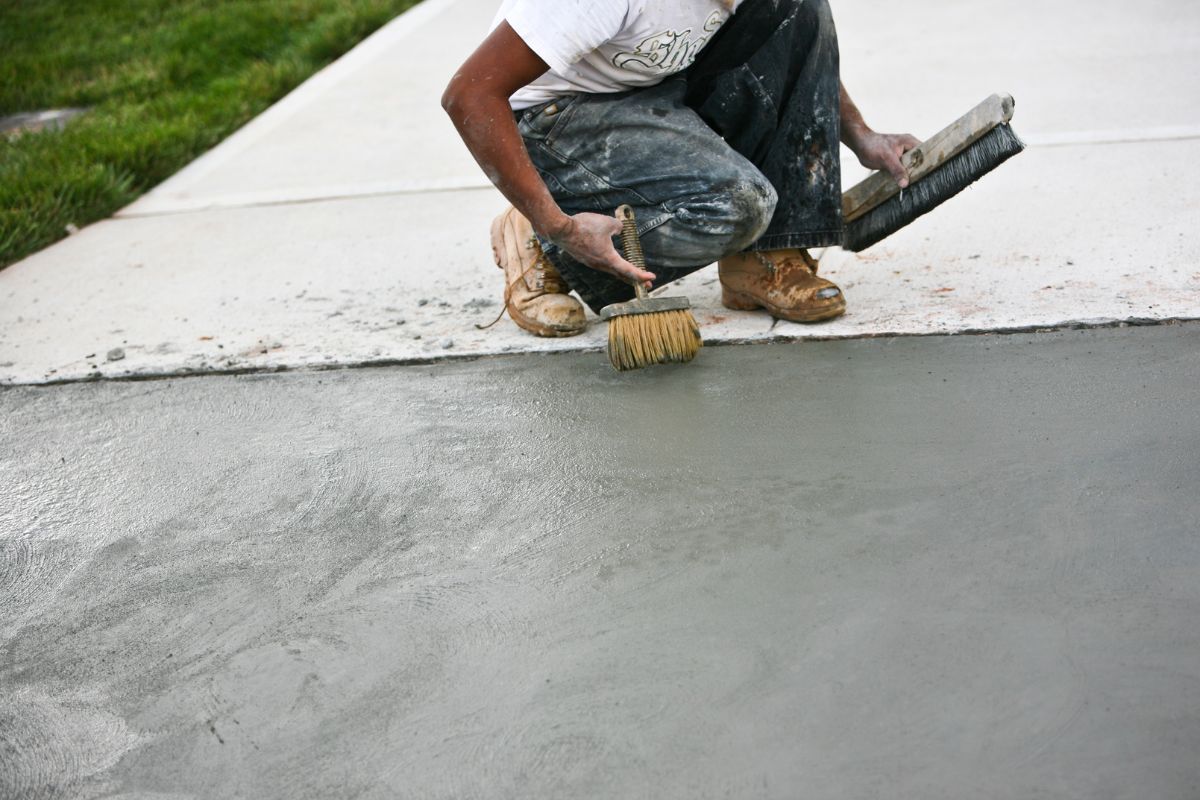How to lay resin driveway
Can you provide more information about the pros and cons of resin driveways?
While resin driveways have gained popularity, there are alternative options available for those seeking different surfacing materials. One popular alternative is block paving, which involves arranging interlocking blocks to create a durable and visually appealing driveway. Block paving offers versatility in design, allowing for various patterns, colors, and textures. It also provides excellent load-bearing capacity and can withstand heavy traffic.
Another alternative is concrete, known for its strength and durability. Concrete driveways can be customized with various finishes, such as stamped or stained concrete, to achieve different aesthetic effects. They are also relatively low maintenance and can withstand harsh weather conditions. Additionally, natural stone, such as granite or sandstone, can be used to create a unique and elegant driveway.
Natural stone driveways offer a timeless appeal, durability, and resistance to fading. Each of these alternatives provides homeowners with different options to suit their preferences, budget, and the overall style of their property.
Anthracite Resin Driveway:
An anthracite resin driveway refers to a type of resin-bound or resin-bonded driveway that utilizes anthracite-colored aggregates. Anthracite is a dark gray to black coal-like substance that is commonly used in construction materials. When used in a resin driveway, anthracite aggregates create a sleek and sophisticated appearance.

Can you provide more information about the pros and cons of resin driveways?
The dark color offers a contemporary and modern aesthetic, complementing a variety of architectural styles. Anthracite resin driveways are highly durable, resistant to cracking, and require minimal maintenance. They also provide a smooth and comfortable surface for vehicles and pedestrians. With their anti-slip properties, anthracite resin driveways ensure safety even in wet conditions.
The anthracite color is known for its ability to hide dirt and stains, maintaining a cleaner and more polished appearance over time. Whether in a residential or commercial setting, an anthracite resin driveway can add a touch of elegance and sophistication to any property.
Anti-Slip Resin Driveway:
An anti-slip resin driveway is designed to provide enhanced safety by minimizing the risk of slips and falls, especially in wet or icy conditions. The anti-slip properties are achieved by incorporating special aggregates or additives into the resin mixture during the installation process.
These aggregates typically have a rough texture or a high coefficient of friction, which improves traction and grip. The result is a surface that offers better slip resistance, reducing the potential for accidents.
Can you provide more information about the pros and cons of resin driveways?How much does a resin driveway cost in general in the UK?
Anti-slip resin driveways are particularly beneficial in areas with high foot traffic or where safety is a primary concern, such as driveways leading to entrances, ramps, or sloped areas. By prioritizing safety, an anti-slip resin driveway ensures that both pedestrians and vehicles can navigate the surface with confidence, even in adverse weather conditions.
Average Cost of Resin Driveway:
The cost of a resin driveway can vary depending on the size of the area, the complexity of the installation, and the choice of materials. On average, the cost of a resin driveway ranges from £40 to £100 per square meter in the UK. Keep in mind that this is just a general estimate, and prices may vary based on your location and specific requirements.
Factors that can influence the cost include the preparation work needed, such as excavation and leveling, as well as the type and quality of the resin and aggregates used. Additionally, if you opt for additional features like edging, lighting, or drainage systems, it will add to the overall cost. It's recommended to obtain multiple quotes from reputable contractors to get a better understanding of the cost for your specific project.
While price is an important consideration, it's also crucial to prioritize quality and choose an experienced professional to ensure a durable and well-installed resin driveway that will stand the test of time.

How much does a resin driveway cost?
Base for Resin Driveway:
The base for a resin driveway is a crucial component that provides stability and support to the surface. A well-prepared and properly constructed base ensures the longevity and performance of the resin driveway. The base typically consists of multiple layers, including a sub-base and a binder course.
The sub-base is the bottommost layer, usually made of compacted hardcore or crushed stone, which serves as a stable foundation. It helps to distribute the weight evenly and prevent sinking or shifting of the driveway. On top of the sub-base, a binder course is added, which is a layer of compacted aggregate mixed with a binder material like resin or bitumen. This layer creates a solid and level surface for the resin to adhere to.
The thickness of the base layers may vary depending on factors like soil conditions and the expected traffic load. It's essential to ensure proper compaction and leveling during the base installation to avoid any future issues with the resin driveway. Consulting with a professional contractor can help determine the appropriate base construction for your specific project, considering factors like soil type and drainage requirements.
Best Base for Resin Driveway:
What is the cost of a resin bound drive in Bury?
The best base for a resin driveway depends on various factors, including the existing ground conditions, intended use, and budget. Two common types of bases used for resin driveways are permeable and non-permeable bases.
Permeable bases, also known as open-textured bases, are designed to allow water to drain through, promoting efficient drainage and reducing the risk of surface flooding. They typically consist of materials like open-grade aggregates or specially designed porous materials.
Permeable bases are recommended in areas where drainage is a concern, such as regions with heavy rainfall or areas where planning regulations require sustainable drainage solutions.
On the other hand, non-permeable bases are suitable for areas with well-drained soil or when installing a resin driveway on an existing solid and impermeable surface like concrete or asphalt. Non-permeable bases provide a sturdy and stable foundation for the resin surface.
Consulting with a professional contractor is essential to assess the ground conditions and determine the best base option for your specific project, considering factors like drainage requirements, local regulations, and budget constraints.
Can you show me some pictures of resin driveways?
Best Colour Resin Driveway:
The choice of the best color for a resin driveway depends on personal preferences, the overall aesthetics of the property, and the desired visual impact. Resin driveways offer a wide range of color options to choose from, allowing you to create a customized look that suits your taste and complements your home's style.
Neutral colors like shades of gray, beige, or brown are popular choices as they offer a timeless and versatile appeal. They can blend seamlessly with various architectural styles and surrounding landscapes. Darker colors like anthracite or black can create a sleek and modern appearance, adding a touch of sophistication to your driveway.
Lighter colors like cream or ivory can brighten up the space and give a more open and airy feel. Ultimately, the best color for your resin driveway will depend on your personal preference, the desired aesthetic, and how it harmonizes with the overall design and color scheme of your property.
Best Way to Clean Resin Driveway:
How much does it cost to install a resin driveway?
Cleaning and maintaining a resin driveway is relatively straightforward. Regular maintenance helps to preserve its appearance and longevity. The best way to clean a resin driveway is to start by removing any loose debris or leaves using a stiff broom or a leaf blower. This step prevents dirt and debris from accumulating on the surface.
For general cleaning, a gentle detergent mixed with water can be used. Apply the soapy solution to the surface and scrub with a soft-bristle brush or a deck brush. Avoid using harsh chemicals, bleach, or abrasive cleaners, as they can damage the resin.
Rinse the driveway thoroughly with clean water to remove any soap residue. A garden hose or pressure washer on a low setting can be used for this purpose.
If you're using a pressure washer, be cautious not to use excessive pressure, as it may dislodge the resin or damage the surface. For stubborn stains or marks, you can use a mild solvent-based cleaner specifically designed for resin surfaces. Follow the manufacturer's instructions and test the cleaner on a small, inconspicuous area first to ensure compatibility.
Scrub the stained area gently and rinse it thoroughly. To prevent the growth of moss, algae, or weeds, regular maintenance is important. Remove any plant growth manually, and if necessary, use a moss or weed killer that is suitable for resin driveways.
How does the size and condition of my existing driveway affect the cost of installing a resin driveway?
The size, shape, and condition of your existing driveway play a significant role in the overall cost. If your base is old or damaged, it may require extensive groundworks or the installation of a new concrete or tarmac base, which increases costs. Additionally, larger driveways with intricate curves or borders may require more preparation work and materials compared to smaller, simpler spaces.
Why is UV protection an important cost factor in resin driveway installation?
UV protection is an important consideration for resin driveways. UV stable resins are more expensive but offer benefits such as preventing discoloration and deterioration caused by prolonged sun exposure. Investing in a higher-quality UV stable resin ensures long-lasting durability and maintains the aesthetic appeal of your driveway over time, making it a worthwhile investment despite the slightly higher initial cost.